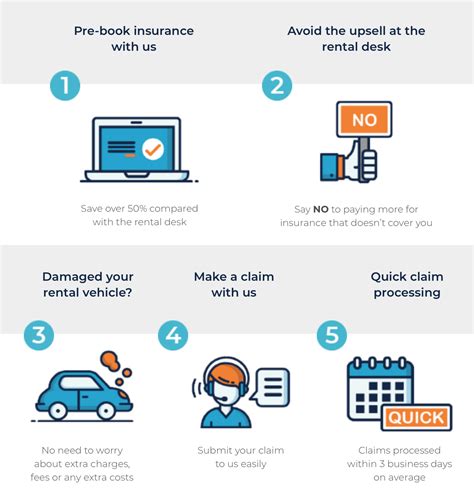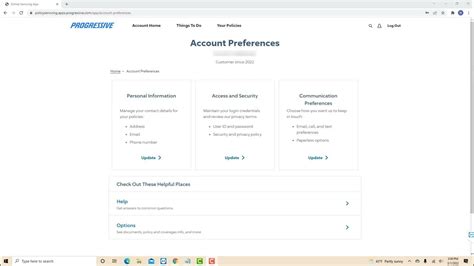Rental Vehicle Insurance

In the world of travel and mobility, rental vehicles play a crucial role, offering convenience and flexibility to millions of travelers worldwide. With the rise in tourism and business travel, the rental car industry has grown exponentially, providing an extensive range of options to suit various needs. However, with this growth comes an essential consideration: insurance. Rental vehicle insurance is a critical aspect that often requires careful navigation, ensuring travelers are adequately protected while on the road. This article aims to delve into the intricacies of rental vehicle insurance, offering a comprehensive guide to help travelers make informed decisions and navigate potential pitfalls.
Understanding Rental Vehicle Insurance

Rental vehicle insurance, often an optional add-on, provides financial protection in the event of an accident or damage to the rental car. It acts as a safety net, ensuring that travelers aren’t left with unexpected and potentially significant expenses. The coverage typically includes liability protection, which covers damage to other vehicles or property, and sometimes personal injury protection, covering medical expenses for the driver and passengers.
However, the world of rental vehicle insurance is not without its complexities. It's often a maze of different policies, terms, and conditions, which can vary significantly between rental companies and even between different locations within the same company. Understanding these nuances is crucial to ensure that travelers are getting the right coverage for their needs.
The Different Types of Rental Vehicle Insurance
Rental vehicle insurance comes in several forms, each with its own specific coverage and limitations. Let’s explore some of the most common types:
- Collision Damage Waiver (CDW) or Loss Damage Waiver (LDW): This is perhaps the most well-known type of rental car insurance. It waives the renter's responsibility for damage to the rental vehicle, except in cases of gross negligence or specified exclusions. CDW/LDW does not cover personal injuries or damage to other vehicles or property.
- Liability Insurance: This coverage protects the renter against claims made by third parties for bodily injury or property damage resulting from an accident. It is often required by law and may be included in the base rental rate.
- Personal Accident Insurance (PAI): PAI provides coverage for medical expenses and accidental death or dismemberment benefits for the renter and any additional drivers listed on the rental agreement.
- Personal Effects Coverage (PEC): As the name suggests, PEC covers the loss, theft, or damage of personal belongings left in the rental car.
- Supplemental Liability Insurance (SLI): SLI provides additional liability coverage beyond what is offered by the standard liability insurance, offering higher limits for claims made by third parties.
It's important to note that the availability and specifics of these coverages can vary depending on the rental company, the location of the rental, and the renter's home country. Additionally, some credit card companies offer rental car insurance benefits when the rental is charged to their card, which can further complicate the decision-making process.
Factors Influencing Rental Vehicle Insurance Decisions

When deciding on rental vehicle insurance, several factors come into play, each influencing the choice of coverage and the overall cost.
Renter’s Home Country and Laws
The laws and regulations of the renter’s home country can significantly impact their insurance needs and options. For instance, some countries require renters to have comprehensive insurance coverage, while others may provide a basic level of coverage by default. Understanding these regulations is crucial to ensure compliance and adequate protection.
Destination and Local Laws
Similarly, the laws and regulations of the destination country can also play a significant role. Some countries may have specific requirements for rental vehicles, such as the need for certain types of insurance or additional equipment. Additionally, the local driving conditions and potential risks should be considered when deciding on insurance coverage.
Rental Company Policies
Each rental car company has its own set of policies and insurance offerings. These policies can vary widely, with some companies offering comprehensive packages while others may have more limited options. It’s essential to review these policies carefully, paying attention to the fine print and any exclusions or limitations.
Credit Card Benefits
Many credit cards offer rental car insurance benefits, which can provide significant savings and peace of mind. These benefits often include CDW/LDW coverage and sometimes even liability and personal accident insurance. However, it’s crucial to understand the limitations and exclusions of these benefits, as they may not provide the same level of coverage as dedicated insurance policies.
Evaluating Rental Vehicle Insurance Options
With so many factors to consider, evaluating rental vehicle insurance options can be a daunting task. Here are some key considerations to help navigate this process:
- Compare Coverage and Prices: Research and compare the coverage and prices offered by different rental companies and insurance providers. Look for policies that offer the most comprehensive coverage at a reasonable price.
- Understand Exclusions: Read the fine print to understand what is not covered by the insurance policy. Common exclusions include damage to certain parts of the vehicle, damage caused by off-roading, and damage due to negligence or willful misconduct.
- Consider Your Own Insurance: If you have personal auto insurance, check if it covers rental cars. Some policies may provide similar coverage to CDW/LDW, which can save you from purchasing additional insurance.
- Review Credit Card Benefits: If you're paying for the rental with a credit card, check the benefits it offers. Many credit cards include rental car insurance, which can provide significant savings and coverage.
- Evaluate Deductibles: Deductibles are the amount you must pay out of pocket before the insurance coverage kicks in. Higher deductibles can lower your insurance costs, but they also mean you'll have to pay more in the event of a claim.
The Role of Technology in Rental Vehicle Insurance
In recent years, technology has played an increasingly significant role in the rental vehicle insurance industry. From digital platforms that provide comprehensive comparisons of insurance policies to innovative solutions that utilize telematics and data analytics to offer usage-based insurance, the industry is evolving rapidly.
For instance, some rental companies now offer dynamic insurance pricing, where the cost of insurance is determined based on the driver's behavior and the specific trip details. This approach can provide significant savings for safe drivers and short-distance trips while ensuring that the insurance premium is fair and reflective of the actual risk.
Common Pitfalls and Misconceptions
Despite the importance of rental vehicle insurance, there are several common pitfalls and misconceptions that travelers often fall into. Here are some of the most prevalent issues:
- Assuming Credit Card Insurance Covers Everything: While credit cards often provide rental car insurance benefits, they may not cover all situations or offer the same level of coverage as dedicated insurance policies. It's crucial to review the terms and conditions carefully to understand the scope of the coverage.
- Not Reading the Fine Print: Many travelers make the mistake of skimming over the fine print, assuming that the insurance policy will cover everything. However, this can lead to unpleasant surprises, as many policies have specific exclusions and limitations.
- Not Considering Personal Insurance: Some travelers overlook the fact that their personal auto insurance policy may cover rental cars. It's essential to review your personal insurance policy to understand the extent of this coverage and make informed decisions.
- Overlooking Additional Drivers: If you plan to share the driving responsibilities with another person, ensure that they are added as an additional driver to the rental agreement. This will ensure that they are covered by the insurance policy and avoid any potential issues in the event of an accident.
The Future of Rental Vehicle Insurance

As the rental car industry continues to evolve, so too will the landscape of rental vehicle insurance. With the rise of shared mobility services and the increasing popularity of short-term rentals, insurance providers will need to adapt to meet the changing needs of travelers.
One potential future development is the integration of rental vehicle insurance with other travel insurance policies. This could provide a more holistic approach to travel protection, ensuring that travelers are covered for a range of potential issues, from medical emergencies to rental car accidents.
Additionally, the continued advancement of technology will likely play a significant role in shaping the future of rental vehicle insurance. From more advanced telematics systems that provide real-time data on driving behavior to the potential use of blockchain technology for secure and transparent insurance transactions, the possibilities are vast.
Conclusion
Rental vehicle insurance is a critical consideration for any traveler renting a car. With the right insurance coverage, travelers can have peace of mind, knowing they are protected in the event of an accident or damage to the rental vehicle. However, navigating the world of rental vehicle insurance can be complex, with a multitude of factors to consider. By understanding the different types of insurance, the influencing factors, and the common pitfalls, travelers can make informed decisions and ensure they are adequately protected on their journeys.
Frequently Asked Questions
What is the difference between CDW and LDW in rental car insurance?
+
CDW stands for Collision Damage Waiver, while LDW stands for Loss Damage Waiver. These terms are often used interchangeably, and both refer to insurance coverage that waives the renter’s responsibility for damage to the rental vehicle, except in cases of gross negligence or specified exclusions.
Do I need to purchase rental car insurance if I have my own auto insurance?
+
It depends on the coverage provided by your personal auto insurance policy. Some policies may cover rental cars, providing similar coverage to CDW/LDW. However, it’s crucial to review your personal insurance policy carefully to understand the extent of this coverage.
What are some common exclusions in rental car insurance policies?
+
Common exclusions in rental car insurance policies include damage to certain parts of the vehicle, damage caused by off-roading, and damage due to negligence or willful misconduct. It’s essential to read the fine print of the insurance policy to understand what is not covered.
Can I add an additional driver to my rental car insurance policy?
+
Yes, most rental car insurance policies allow you to add additional drivers to the rental agreement. This ensures that they are covered by the insurance policy and avoids potential issues in the event of an accident. However, there may be an additional fee for adding an extra driver.
How can I save money on rental car insurance?
+
There are several ways to save money on rental car insurance. Consider using your own auto insurance if it covers rental cars, review credit card benefits that may include rental car insurance, and evaluate the deductibles to find a balance between cost and coverage that suits your needs.



